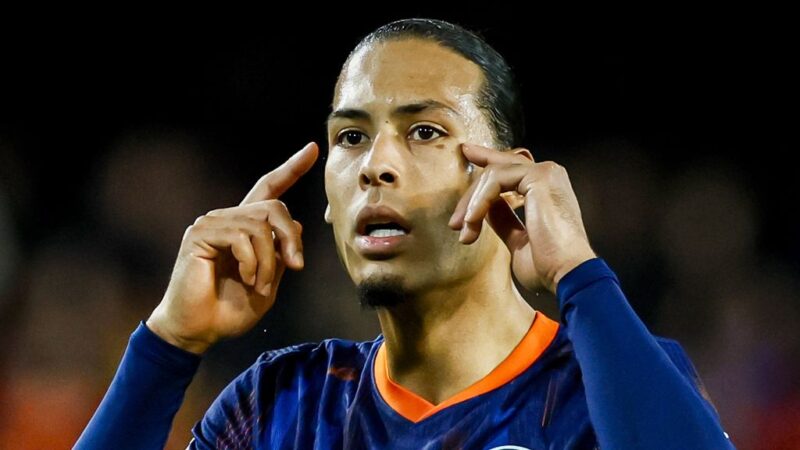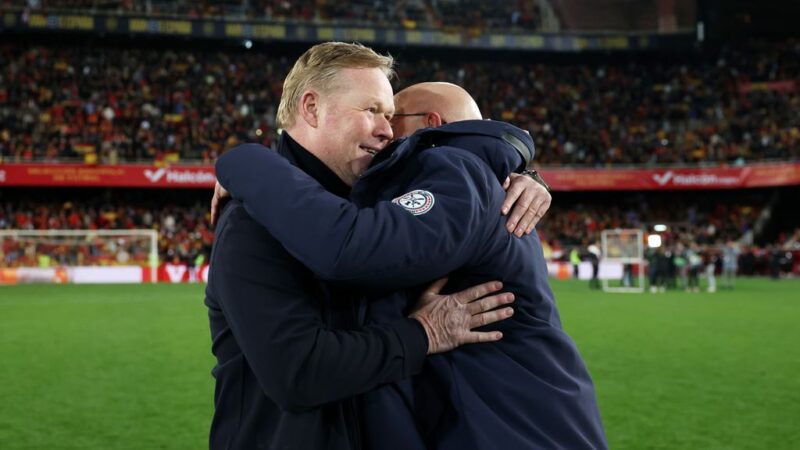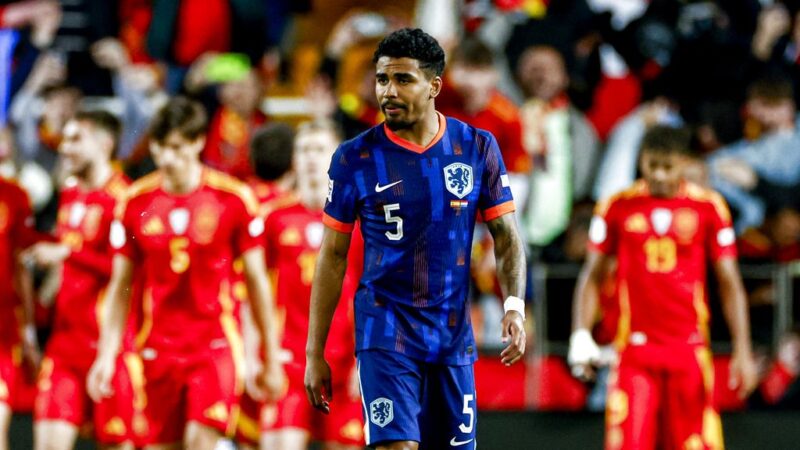What does that do mentally to someone like Haaland?

NOS Football–
-
Jonna ter Veer
editor of NOS Sports
-
Jonna ter Veer
editor of NOS Sports
After his fifth goal in one Champions League game, Manchester City manager Pep Guardiola changed his star player, 22-year-old Erling Haaland. The latter protested. He wanted to stay on the pitch, Guardiola told afterwards.
His second goal was his 30th in the Champions League, also the Norwegian became the player to score the most often for City in one season.
His fifth goal was another benchmark, making Haaland the third player ever to have accomplished this, after Lionel Messi (2012) and Luiz Adriano (2014).
He wanted to score his sixth goal, too. After all, no footballer had ever done that before in the Champions League. But Guardiola stuck to his point, the Norwegian had to go to the side.
The Manchester City coach said of this afterwards, “If he also reached this milestone, it would be boring for him. Now he still has a goal.”
Peak early, then what?
Does Guardiola have a point? When you peak and pulverize records so young as a soccer player, how do you keep yourself motivated until your true peak and then your “sports retirement”?
“By examining in yourself what makes you want to get the best out of yourself every time,” says sports psychologist Afke van de Wouw. “Top scorers score high on two things: they want to win, i.e. results, as well as getting better at certain skills.”
The latter depends on your values, she says: why do you play sports, what do you find important?
A good example is Rico Verhoeven (33). He too peaked at a young age and has been an unbroken world champion in the heavyweight category in kickboxing for almost a decade now.
His main “value,” according to people who know him well, is that he always wants to become a better version of himself, despite the lack of real competition. The same goes for wheelchair tennis star Diede de Groot, who took her ninth consecutive grandslam title – and 17th overall – at the Australian Open in January.
Titles she doesn’t actually consider the most important. “For me, winning is being able to say after the tournament: I played really well,” she said.
And what about Lionel Messi. He broke record after record. His numbers are unmatched. Only the world title with Argentina was missing from his record, but he won that too last World Cup. He has nothing more to wish for, nothing more to win, and yet he too says, “My motivation is to get better every time.”
‘Kick from the locker room’
Your personal values are your drivers for success, says Van de Wouw. For example, Guardiola described his pupil Haaland as an upbeat guy, who brings a lot of cheer to the locker room. “That may mean that he also gets his motivation from team spirit and playing together, and not just from scoring a lot of goals,” says the sports psychologist.
Guardiola explained Haaland’s substitution after the match:

Guardiola explains why he changed Haaland: ‘Now he still has a goal’
Whether it was a good decision by Guardiola to change Haaland so he still had a “goal to achieve,” Van de Wouw cannot judge.
But to keep someone motivated, whether in soccer or in the workplace, there is the golden abc rule: autonomy, bonding and competence.
ABC Rule
She explains: “‘Autonomy’ means that you can have a say in how you achieve your goals.” So if Guardiola can properly explain to Haaland why he changed him and then give him direction on new goals, he will stay motivated.
“Bonding” or “connection” means feeling that you belong somewhere, she explains. “Feeling part of a team and feeling seen by your coach, for example – as with Haaland and Guardiola.”
Finally, competence is about skills, ability or qualities you can develop. “It motivates when you notice that you are getting better at something,” he said. A good manager directs his employees or players, with this abc in mind, she says.
And what about that magic age of around 22 for top soccer players? Your frontal cortex is not fully developed then, which is the part of your brain that, among other things, allows you to oversee the consequences of your actions. This can cause a player to be more open-minded on the field and have that “beginner’s mind” even more, according to the sports psychologist.
“With that beginner’s mind, you’re very good at taking penalties – and scoring,” she laughs.
Like the young Norwegian goal-scoring machine who, in the Champions League match against Leipzig after 22 minutes, confidently put the ball on the spot, came running and popped the ball past goalkeeper Janis Blaswich like a cannonball. He ran on jubilantly after his shot. He already knew it would be a goal.





